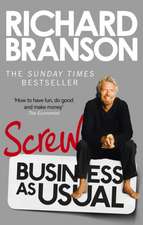Behavioural Public Policy
Editat de Adam Oliveren Limba Engleză Paperback – 23 oct 2013
| Toate formatele și edițiile | Preț | Express |
|---|---|---|
| Paperback (1) | 317.08 lei 6-8 săpt. | |
| Cambridge University Press – 23 oct 2013 | 317.08 lei 6-8 săpt. | |
| Hardback (1) | 684.47 lei 6-8 săpt. | |
| Cambridge University Press – 23 oct 2013 | 684.47 lei 6-8 săpt. |
Preț: 317.08 lei
Nou
60.69€ • 63.71$ • 50.14£
Carte tipărită la comandă
Livrare economică 30 ianuarie-13 februarie 25
Specificații
ISBN-10: 1107617375
Pagini: 249
Ilustrații: 18 b/w illus. 6 tables
Dimensiuni: 152 x 228 x 14 mm
Greutate: 0.41 kg
Ediția:New.
Editura: Cambridge University Press
Colecția Cambridge University Press
Locul publicării:New York, United States
Cuprins
Introduction Adam Oliver; 1. Ambiguity aversion and the UK government's response to swine flu Adam Oliver; 1.1 A response to Oliver Christopher Exeter; 2. Models of governance of public services: empirical and behavioural analysis of 'Econs' and 'Humans' Gwyn Bevan and Barbara Fasolo; 2.1 A response to Bevan and Fasolo Charitini Stavropoulou; 3. From irresponsible knaves to responsible knights for just 5p: behavioural public policy and the environment Kate Disney, Julian Le Grand and Giles Atkinson; 3.1 A response to Disney, Le Grand and Atkinson Richard Cookson; 4. The more who die, the less we care: psychic numbing and genocide Paul Slovic and Daniel Västfjäll; 4.1 A response to Slovic and Västfjäll Jonathan Wolff; 5. Healthy habits: some thoughts on the role of public policy in healthful eating and exercise under limited rationality Matthew Rabin; 5.1 A response to Rabin Alex Voorhoeve; 6. Confessing one's sins but still committing them: transparency and the failure of disclosure Sunita Sah, Daylian M. Cain and George Loewenstein; 6.1 A response to Sah, Cain and Loewenstein Robert Sugden; 7. How should people be rewarded for their work? Bruno Frey; 7.1 A response to Frey Matteo M. Galizzi; 8. Influencing the financial behaviour of individuals: the mindspace way Paul Dolan; 8.1 A response to Dolan Sander van der Linden; 9. Decision analysis from a neo-Calvinist point of view Drazen Prelec; 9.1 A response to Prelec Luc Bovens; Index.
Recenzii
'This subject is at the heart of the reform of public services in the twenty-first century. The need to provide better public services with fewer resources, combined with recent advances in behavioural sciences, is creating a quiet revolution in the way public policy is analysed and services are delivered. This book is essential reading for all interested in improving public policy and services.' Lord Gus O'Donnell, Former Cabinet Secretary and Head of the Civil Service
'The field of behavioral economics has evolved rapidly over the past thirty years, and this exciting volume shows how these developments can be applied to important policy questions. This book is a valuable source of insight for practitioners, students, and researchers.' Ernst Fehr, University of Zurich
'The rapid growth of applications to policy is surely the most important development in behavioural economics in recent years. This volume reports some of these advances, but it also includes a welcome discussion of the moral underpinnings of behavioural interventions in policy.' Daniel Kahneman, Princeton University, and Nobel Laureate in Economics, 2002
'This volume eloquently reveals the extraordinary power of behavioral economics as a tool for predicting and influencing human behavior, and simultaneously raises profound questions about the ethical foundations of the brave new world of paternalistic policies that is rapidly emerging.' David Laibson, Harvard University
'The idea of using behavioral economics to design public policy has captured the popular imagination. This book provides scientific meat behind this idea. It brings together a wonderful collection of thoughtful scholarly articles by some of the biggest names in the area.' Sendhil Mullainathan, Harvard University
Descriere
How can individuals best be encouraged to take more responsibility for their well-being and their environment or to behave more ethically in their business transactions? Across the world, governments are showing a growing interest in using behavioural economic research to inform the design of nudges which, some suggest, might encourage citizens to adopt beneficial patterns of behaviour. In this fascinating collection, leading academic economists, psychologists and philosophers reflect on how behavioural economic findings can be used to help inform the design of policy initiatives in the areas of health, education, the environment, personal finances and worker remuneration. Each chapter is accompanied by a shorter 'response' that provides critical commentary and an alternative perspective. This accessible book will interest academic researchers, graduate students and policy-makers across a range of disciplinary perspectives.












